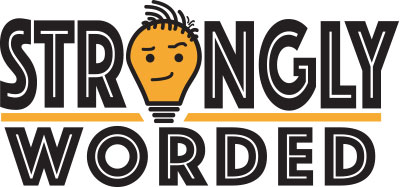My vote for dumbest debate of the Corona Crisis? While it’s a pretty heated contest, I think the winner is this “health vs. wealth” nonsense. I know, I know… it rhymes, which is usually a sign of something super-profound, but bear with me for a second.
If you aren’t familiar, the health vs. wealth argument stems from the debate over when and how we should reopen the segments of the US economy and life currently closed by government mandate. Health vs. wealth basically says you are either for taking care of people’s heath (keeping the economy closed for longer) or for your wealth (open the economy sooner).
If you spend any time at all reading about this particular debate on the internet, you will quickly find people who will happily tell you if you don’t agree with their conclusion that you are an awful excuse for a human being (and occasionally that they hope you catch Coronavirus and die). Wow.
What’s the Problem Here?
Health vs. wealth gets my vote for the dumbest debate of the Corona Crisis because it is misguided in its entirety. Go ahead, pick either side… you’ll be wrong either way. As it turns out, both health and wealth rely deeply on one another. Obviously, a population of gravely ill people can’t produce a whole lot of wealth. Less obvious to some, who argue for all sorts of health care enhancements and government bailouts, is that all those things require – you guessed it – wealth!
I think a big part of the problem is the use of the word “wealth.” I do grant you; it’s got that awesome rhyming thing going for it, but it also has strong negative connotations for a lot of people. It’s just so fun and easy to picture Jeff Bezos or the Monopoly Man sitting on top of a pile of cash lighting cigars with $100 bills. I will pass for now on listing all the ways that imagery is misleading, because it’s just too long a list.
That view of wealth ignores the reality that wealth is the same as resources. That is what the economy produces. For all of us. The economy isn’t even remotely the servant of only the rich and powerful. Need more masks and gowns? That’s wealth. Need food and housing? Wealth again.
Saying the government should just mandate or provide those things once again misses the big picture entirely: government doesn’t make things; it must buy things from private companies. To make those purchases, it needs tax revenues… from private companies and citizens. Government can only exist (for extended periods of time) on the back of private enterprise. Private enterprise (aka, the economy) always exists whether there is government of not.
It’s Complicated
Solving complicated problems always involves trade-offs. It’s a lot cleaner (and thereby more attractive) to pick one objective or another and pretend (it is pretending) it’s the only important variable, but it won’t get you anything near the best possible solution.
What trade-off could possibly be worth risking more Coronavirus deaths you ask? Perhaps 26.5 million unemployed Americans generates serious enough human costs to be considered? Might poverty itself be at least as deadly as Coronavirus? What about the UN’s warning the economic downturn caused by our Coronavirus response could kill hundreds of thousands of children worldwide in 2020 alone? What about giving people the best information possible and trusting them to make good decisions. (You know, like freedom?)
It’s beyond misleading to say health and wealth are opposites and picking one makes you a good guy and picking the other means you suck. The truth of the available alternatives is they are far messier and more complex than we want them to be. The only way to really be on the “good” side of things is to acknowledge that complexity and do your best to navigate your way to the best possible combination of options.
With the incredibly high stakes of Coronavirus and our response to it, it would have been great for us to drop our politicized bickering, acknowledge the complex realities of the situation and work together towards a solution that addresses a multitude of conflicting considerations simultaneously. So far, that hasn’t been the case, but every day gives us a new opportunity to pursue a more productive approach. I hope we take it.

